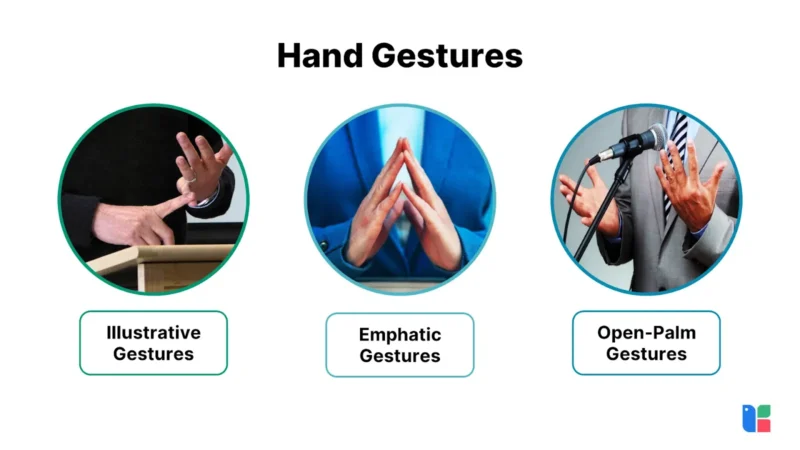6 HR trends that will make revolutionary change in recruitment process

These past few years have been a powerful catalyst for change for families, individuals, and businesses. With the widespread acceptance of remote work, HR technology has become a key component of today’s people teams.
Flexible working hours, which were a trend before the pandemic, are now the norm. Inequality has made it more important to implement inclusion programs. It is more important than ever to support employee wellbeing, both mental and physical.
This post will discuss the most recent trends in HR technology and how they can be used to your advantage.
- What is HR Tech?
- Why is HR Tech so important?
- HR Tech Solutions
- HR Technology Focus for the Future
- Six HR Technology Trends for 2022
What is HR Tech?
You are not the only one who has wondered “What is HR technology?” The umbrella term HR tech (or human resource technology) refers to the tools that HR managers use in order to provide a better employee experience.
Software for HR can store and automate data securely, provide analytics tools, and help drive strategic decision-making. A digital HR platform can manage functions such as employee communication, pay, benefits and recruitment. These processes can be automated to save your company time and money. This reduces the risk of human error and helps to prevent costly errors from happening. This makes it perfect for the current work-from home environment. Employers and employees can upload or review data anywhere, including from their mobile devices.
This HR technology is not optional in the 21st Century. It is vital for an organization’s success. Research has shown that companies that use HR software perform better than those that don’t. HR professionals who do not use software might fall behind. In order to keep up with changing business needs, the pace of HR technology development in 2020 has been rapid. The integration of HR technology has never been better.
Why is HR Tech So Important?
The world we live in today is very different from the one we lived in ten year ago, thanks to digitalization and technological revolution. Technology is disrupting our lives and changing the world around us. The COVID-19 pandemic and the past years have demonstrated that technology is becoming more important to us. It has allowed us to stay connected to our loved ones and has enabled many of us to work remotely.
This is true for HR tech. PWC’s last year’s report on HR technology found that companies place increasing importance on technology in human resources. 600 HR and IT leaders from around the globe contributed their views to the report. It examined the effectiveness of technology investments. Their findings show that HR technology is being used more frequently by organizations to ensure success in the future.
HR Tech Solutions will bring about change
Technology revolutionizes HR processes every day. These are just a few of the many ways that HR tech solutions can benefit your company.
Boost Efficiency
There are many responsibilities for HR teams and there is no room to make mistakes. HR technology can simplify and streamline organizational tasks. This technology also allows for one platform to manage all HR functions, which reduces confusion and minimizes mistakes.
- Improve organizational communication.
- Develop an effective training program.
- Provide more regular feedback to employees.
- Build a company cultural vision.
- Use available technology.
- Take advantage of data.
Attract Talent
The largest generation of digital natives are the millennials. They expect their employers to offer the latest technologies, including HR software that allows them to manage their time and records. Businesses must provide tools that allow employees to work wherever and whenever they wish to appeal to skilled workers.
Using technology in the recruitment process reduces human error. Another advantage of the increased use of technological tools in selection and sorting is the reduction of human dependency. People often make decisions based on criteria such as gender, race and age rather than merit or experience
Make informed decisions
Every day, your business produces data. Is your business utilizing this data? Data analytics provides valuable insight into everyday affairs and proactive organizations are using their records to make it more useful. To get a better understanding of the real situation, they also create custom HR reports that track employee absence, productivity, pay, and other data.
Keep your eyes on the important things
The ability to free HR professionals from repetitive tasks allows them to spend more time on strategic decision-making. HR professionals are a wealth of information. They can make a huge impact on company culture by having the ability to analyse data and then apply those findings.
HR Technology Focus for the Future
As we move forward in the future of work there are some areas HR professionals should be focusing our attention on. How can you attract top talent? What type of employment model will your company use in the future? Are you a strong believer in performance management? What do you think your workforce will look like in the future? Are you expecting growth? A shift in demographics? Before you choose the best integrated software solution to fit your needs, it is important to take into account all of these factors.
Also, you need to consider attracting and retaining talent as well as employee development and improving employee work experiences. These are the most important issues to consider when developing your business strategy for the future.
Six HR Technology Trends for 2022
We see the influence of the last year and a continuing movement towards digital transformation in the 2022 HR technology trends. These are the tech trends that you should be aware of.
1. Artificial Intelligence for Recruiting
The field of recruitment is the most affected by artificial intelligence. Employers are now able to use AI-based algorithms to find the best talent. They can access information from many sources, including social media activity. IBM uses AI to analyse potential hires’ social media posts. The AI also analyses the facial expressions and sentences of potential hires to determine if they are a good match. This power, while it may sound scary (hello Minority Report), can be used to reduce discrimination in hiring and create a diverse workforce.
2. Digital Transformation in HR
Many companies have begun to implement digital transformation in HR. However, the adoption rate will increase for 2022. This means that technology will be integrated in every aspect of HR.
What is HR digital transformation? HR digital transformation is the process of changing operational HR processes to become automated and data-driven. In order for it to be successful, this metamorphosis should involve the organizations as a whole.
Forbes reports that millennials are driving this trend again, as they rely heavily on automated tools for communication, management, and accounting. Digital transformation is a rise of self-service tools such as automated onboarding or workflows. This also means that HR departments can use data to improve culture and policies within their companies.
3. Remote Work Technology Upgrades
As the work-from-home culture boomed, many of us moved from our offices to our couches after the pandemic. Even if the pandemic is over, there are signs that remote work will not stop. There are many tools that can be used remotely, and there will likely be more upgrades in 2022. This will allow employers and employees to access HR technology from any location. This includes the digitalization of all aspects of scheduling, processing, and requests.
4. Performance and Wellness Management through HR Tech
Performance management will become a continuous, integrated, real-time process in 2022. As organizations shift to a system that includes quarterly/monthly reviews, with the possibility of weekly check-ins and more detailed reviews, annual performance reviews are rapidly falling out of fashion. HR Technology allows employees and supervisors to regularly check in, creating an expectation-setting cycle and providing feedback. The employees will be more aware and specific about their performance, while the supervisors will be better equipped to provide feedback.
5. HR Technology to Protect Data
Businesses must take data security seriously, as there are data privacy laws all over the globe. Employee data must be protected and secured according to the California Consumer Privacy Act and New York’s Stop Hacks and Improve Electronic Security Act. This means that HR tools must be up-to-date when it comes to protecting sensitive information. HR Technology should ensure that documents are centralized and well-organized. Functions such as digital signatures can help keep contracts and payslips safe.
6. Digital Learning, Training, & Development
Surprisingly the pandemic created new opportunities for retraining workers and upskilling them. To help employees adapt to an online-only workplace culture, organizations started to offer training modules. They soon realized that the system could also be used for traditional training opportunities. The future of HR technology will focus on employee learning and development. Businesses want platforms that allow them to share files and resources, automate workflows and support employees in their professional development.
Preparing your workforce for the modernization of its outdated processes is half the battle in implementing HR technology. Get started now to ensure your business is ready for 2022.





